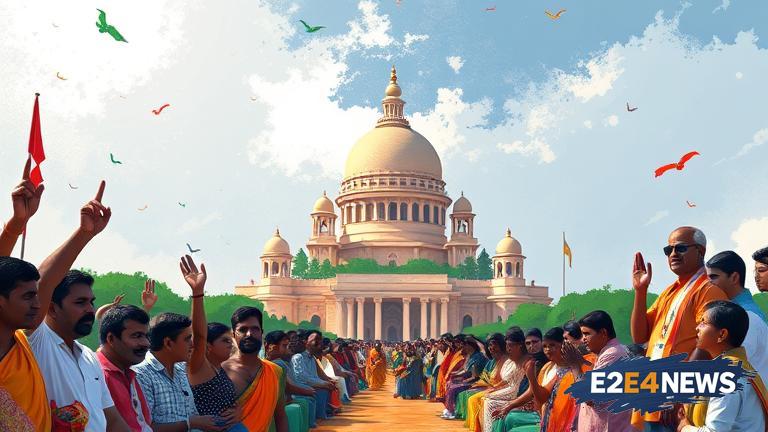The political landscape of Tamil Nadu is on the cusp of a significant transformation, with the 2026 elections likely to witness a fierce battle between various parties and alliances. The Dravidian parties, which have dominated the state’s politics for decades, are facing an existential crisis, with their voter base dwindling and their ideology losing relevance. The All India Anna Dravida Munnetra Kazhagam (AIADMK) and the Dravida Munnetra Kazhagam (DMK) have been the two main pillars of Tamil Nadu’s politics, but their grip on power is slowly loosening. The rise of coalition politics in the state, with smaller parties and regional outfits gaining prominence, may spell the end of the Dravidian parties’ era. The Bharatiya Janata Party (BJP), which has been trying to make inroads into Tamil Nadu, may emerge as a major player in the 2026 elections. The party’s national leadership has been actively courting smaller parties and regional leaders, in a bid to expand its base in the state. The Congress party, which has been in decline in Tamil Nadu, may also try to revive its fortunes by forging alliances with smaller parties. The 2026 elections will be a litmus test for the Dravidian parties, which will have to reinvent themselves and adapt to the changing political landscape. The AIADMK, which has been plagued by internal conflicts and leadership struggles, will have to put its house in order if it wants to remain relevant. The DMK, which has been trying to project itself as a viable alternative to the AIADMK, will have to work hard to retain its voter base. The party’s leadership, which has been dominated by the Karunanidhi family, will have to make way for younger leaders and fresh faces. The rise of coalition politics in Tamil Nadu may also lead to a more fragmented polity, with smaller parties and regional outfits holding the balance of power. This could lead to unstable governments and frequent changes in leadership, which may hinder the state’s development and growth. The 2026 elections will also be a test of the BJP’s national leadership, which will have to balance its ambitions in Tamil Nadu with the need to maintain alliances with smaller parties. The party’s ideological differences with its potential allies may create tensions and conflicts, which could impact the stability of any future government. The Congress party, which has been in decline nationally, may see the 2026 Tamil Nadu elections as an opportunity to revive its fortunes. The party’s national leadership will have to work hard to rebuild its base in the state and forge alliances with smaller parties. The 2026 elections will be a watershed moment in Tamil Nadu’s politics, marking a significant shift away from the dominance of Dravidian parties. The state’s voters will have to decide whether they want to continue with the traditional Dravidian parties or opt for a new era of coalition politics. The outcome of the elections will have far-reaching consequences for the state’s development, growth, and political stability. The Dravidian parties will have to reinvent themselves and adapt to the changing political landscape if they want to remain relevant. The rise of coalition politics may lead to a more fragmented polity, but it may also create opportunities for smaller parties and regional outfits to emerge as major players. The 2026 elections will be a test of the BJP’s national leadership and its ability to balance its ambitions with the need to maintain alliances with smaller parties. The Congress party’s fortunes in the state will also depend on its ability to rebuild its base and forge alliances with smaller parties. Overall, the 2026 Tamil Nadu elections will be a significant event in the state’s political landscape, marking a potential shift away from the dominance of Dravidian parties and towards a new era of coalition politics.
